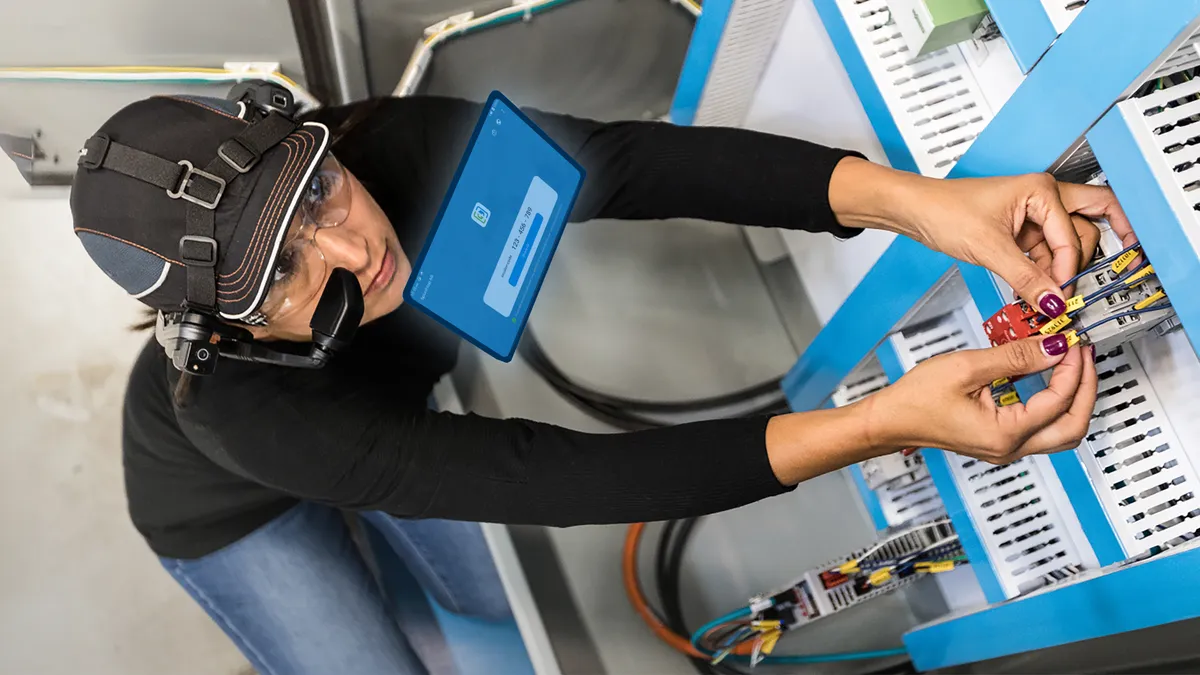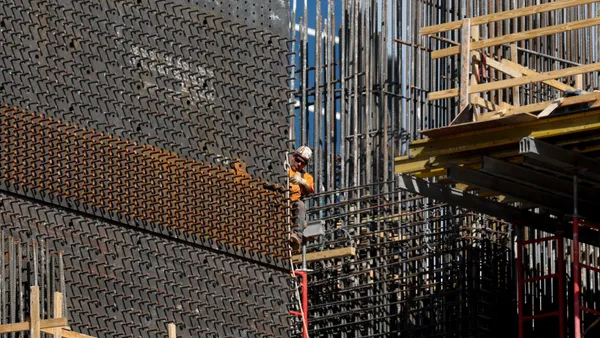Dive Brief:
- The highly anticipated opening of the new $1.5 billion Mercedes-Benz Stadium in Atlanta is scheduled for July 30 and will feature an MLS Atlanta United match as its first major sporting event, according to the Atlanta Journal-Constitution.
- The original completion date for the new stadium, which will also be home to the Atlanta Falcons football team, was set for March of this year, but the schedule has experienced at least two delays due to the structure’s unique HOK-designed retractable roof, the venue’s signature element.
- Falcons officials expect general contractor HHRM to turn the facility over as early as April, allowing the team to make the final touches necessary for the Atlanta United game, its own NFL season and a series of smaller events.
Dive Insight:
Officials said construction crews have been making up time ever since the fixed portion of the roof was completed in October, at which time construction crews marked the installation of the final beam by signing it before it was secured in place. The real challenge, however, has been the retractable portion of the roof, which is made up of petal-like pieces that have a motion similar to that of a camera lens aperture as it opens and closes.
In May, team president and CEO Rich McKay told news outlets that the roof had to be continuously engineered and that the schedule was hampered by the logistics of having its steel pieces manufactured in 32 plants in the U.S. and Canada.
Project change orders, some related to getting construction crews back on schedule, reached a total of more than $200 million back in August, bringing the project to its current estimated cost of $1.5 billion.
The facility will be the first LEED Platinum–certified stadium and the first sports venue to achieve all of the program's water credits. In its announcement of Green Sports Day, the White House Office of Science and Technology Policy used the Mercedes Benz Stadium as an example of sustainability, highlighting such features as its solar-powered electric-vehicle charging stations and solar panels.












